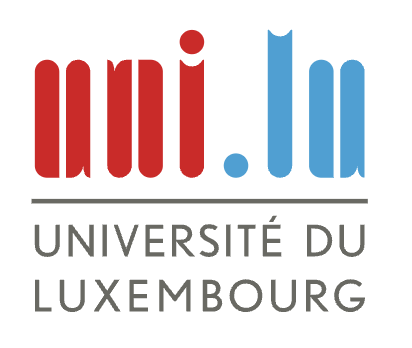The University of Luxembourg has an Inclusion Office and a Committee for Reasonable Adjustments. They want to “promote a culture of inclusion throughout the university”. To achieve this goal, they offer counseling and support. They want to provide students with a “positive, independent and effective learning experience” and “maximise their ability to study”.
Further information about the Inclusion Office and the Reasonable Adjustments Committee at the University of Luxembourg is available at: www.uni.lu > Life at the University Inclusion and wellbeing > Disability support
Target audience
- Students with different physical, sensory disabilities and needs, learning difficulties, temporary illnesses or medical conditions
- International and refugee students
- Staff
- Visitors
Inclusion Office is responsible for
- organising training, workshops and seminars related to inclusion and diversity
- providing resources and support for underrepresented groups
- community building by fostering a sense of belonging and community for all students
- working closely with academic departments and student associations to integrate inclusion principles in university life
- accessibility services
- mentoring, counselling and support services for students.
uni.lu/life-en/inclusion-wellbeing/contact
Addressing issues related to student bullying, harassment, discrimination and sexual misconduct was previously the responsibility of the Inclusion Office. This is now the responsibility of the Ombudspersons.
Inclusion specialists from the Inclusion Office
The following people are part of the Inclusion Office:
- Joanna West (team leader Student Services),
- Vinicius Jobim Fischer (psychologist),
- Claire Lallier (psychologist and psychotherapist),
- Aakriti Varshney (psychologist),
- Jimmy Corneille (Inclusion & well-being specialist),
- Caroline Deylaud-Koukabi (Inclusion & well-being specialist),
- Irmgard Schroeder (Graduate Psychologist),
- Marcela Zambrano (Psychologist / Inclusion).
- Centre LGBTIQ+ Cigale (they are independent, not part of the Inclusion Office, but they work closely)
You can contact them by creating a Kara connect account to take an appointment, or by email (find in website).
Autism & successful studying
Andreia Costa is a dedicated Research Scientist specialising in autism. In this video interview from the University’s Inclusion Office, she talks about strategies and support systems that help students with autism thrive in a university setting.
Video transcription
Interviewer: (0:07) Can you please explain what challenges a student with autism faces at the university? (0:13) To explain, what is autism?
Andreia Costa: (0:16) The difficulties that they have very often in the academic setting are the socialisation (0:21) contacts, difficulties interacting with their peers, difficulties communicating with lecturers, (0:26) also adapting to a new setting that is the university, so it means a less structured (0:33) setting than before they had in secondary school, having new demands about what is required from (0:39) them, having to self-advocate for themselves and having to deal also with more unpredictability.
Interviewer: (0:47) If we think about these challenges, what are reasonable adjustments that could be put in place?
Andreia Costa: (0:55) So, to help autistic students to deal with these difficulties that they face, very often we can recommend things like providing students with material for the class beforehand, so the lecturers providing the PowerPoints or the PDF of the documents that they need beforehand, providing them with clear instructions about assignments that they will have. (1:19) One difficulty that very often comes, it’s about the assessment. (1:23) So, in terms of assessment, we can either, for instance, in one class where students have to do oral presentations, these presentations could be done through a video recording instead of doing it in front of a class. (1:38) Group works, maybe also students, they can adjust a little bit the dynamic of the group where they have to do it. (1:46) Another possibility would be an oral exam, to do it through a video conferencing call instead of face-to-face, for exams to have maybe longer time to do the exam or also to be able to do the exam in a different room.
Interviewer: (2:04) So, I understood that a challenge might be the social interaction of a person with autism with the classmates. (2:12) Is there any measure a teacher can take to help and facilitate these interactions between peers, which is an important part of your studies?
Andreia Costa: (2:22) So, a peer system, where the student may have someone from the class who helps them in their interaction with the lecturer, is usually a system that works well. (2:32) So, this can be someone from the class, but also can be really someone that is designated by the university, that can help the student communicate their needs with the lecturer and also to communicate with the other students about what they need and what are their difficulties sometimes.
Interviewer: (2:50) Thank you very much!
Andreia Costa: (2:52) Thank you!
Committee for Reasonable Adjustments (CAR)
There has been a new law in July 2018. And Joanna West was appointed Chair of the Reasonable Adjustments Committee. As Chair of the CAR, she is also a member of the University Council, in an advisory capacity.
The aim of the committee: work together to ensure that the necessary and appropriate adjustments are made to support students with special needs in relation to their studies and their personal well-being.
Composition of the committee
- One member of the Rectorate,
- one study programme director per faculty,
- the delegate of reasonable adjustments,
- two members of the student representatives appointed by the University Council,
- one additional person with consultative vote.
Reasonable adjustments
In case the student needs adjustments, the student has to write an e-mail to [email protected]. The entire process of opening files, discussions and decision-making should be completed within 30 days.
There are two deadlines per year:
For the Winter semester students must file the request before 15th of October. For the Summer semester students must file the request before 15th of March.
The Committee for Reasonable Adjustments (CAR) concludes based on the nature of the request if the student is allowed to receive reasonable adjustments and which those may be. The University asks
for medical, psychological or a diagnostic report, written by a medical or other suitably qualified professional in the field.
13 different adjustments can be arranged:
- Changes to the room / auditorium layout
- A separate room for assessments
- An adapted layout of assessment papers
- Additional time allowed for examinations, typically 30%.
- Exam duration with additional time (30%):
- 1hr → 80mins (1hr 20)
- 2hrs → 160 mins (2hrs 40)
- 3hrs → 235 mins (3hrs 55)
- Exam duration with additional time (30%):
- Additional breaks during examinations, typically 10mins for exams > 1 hour.
- Exam duration with break(s)
- 1hr → no break
- 2hrs → 10 mins break → 130 mins (2hrs 10)
- 3hrs → 2 x 10 mins → 200 mins (3hrs 20)
- Exam duration with break(s)
- Use of technological support and/or a helper
- Split of assessments into multiple sessions
- Replacement of part of the assessment for a course
- Exemption from some of the examinations or elements of work, participation or attendance planned for a course
- An exemption from the criteria regarding the percentage of ECTS credits to be completed after the first year of study and/or an extension of the maximum duration of studies (as referred to in Article 36, paragraph 7, and article 37, paragraph 5)
- An exemption of the mobility semester during studies leading to the bachelor’s degree (as referred to in Article 36, paragraph 6)
- Option to take assessments outside the University
- Option to complete certain elements of a study programme outside the university.
You’ll find more details in a PDF brochure following the link above.
Mental Health and Wellbeing Service
The Mental Health and Wellbeing Service supports students and staff who deal with difficulties such as
mood disorders, eating disorders, addiction, bereavement, self-esteem and relationship difficulties, [study or work struggles]. The team is available online or on 2 campuses (Belval and Kirchberg) Monday to Friday from 9.00 to 17.00.
Questions
ℹ️ Our team of authors is working on this section. Thank you for your patience.
- What are common adjustment requests for autistic students?
- What experience do the Inclusion Specialists of the Inclusion Office, the Reasonable Adjustments Committee and the Mental Health and Wellbeing Service have with autistic students?
- How do students proceed when they want to make contact with other students?
- What can students do if their inquiries are not accepted?
- Is there any feedback from students?

